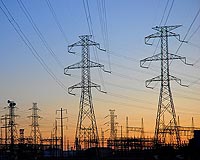 |
Laxenburg, Austria (SPX) Nov 02, 2010 A new assessment of future scenarios that limit the extent of global warming cautions that unless current imbalances in R and D portfolios for the development of new, efficient, and clean energy technologies are redressed, greenhouse gas (GHG) emission reduction targets are unlikely to be met, or met only at considerable costs. The study identifies energy efficiency as the single most important option for achieving significant and long-term reductions in GHG emissions, accounting for up to 50 percent of the reduction potential across the wide range of scenarios analyzed. However, investment in energy efficiency R and D has typically been less than 10 percent of the overall public sector R and D budget in the countries of the International Energy Agency (IEA). Conversely, although nuclear energy accounts for less than 10 percent of the GHG emission reduction potentials across all scenarios, it has received some 50 percent of the total public investment in energy technology R and D. The analysis, conducted by Drs' Arnulf Grubler and Keywan Riahi from the International Institute for Applied Systems Analysis (IIASA), Austria, and published in the inaugural issue of the journal Carbon Management (2010 1(1):79-87), compared historical and current government spending on R and D by the 28 member countries of the International Energy Agency, with a "needs"-based analysis of the technologies required to achieve long-term climate stabilization. The assessment is based on the analysis of a wide range of scenarios of future technology deployment rates under a range of future uncertainties and climate constraints. "Current investments in energy technology R and D by the public sector, in all industrialized countries, are heavily biased in favor of nuclear energy, to the detriment of energy efficiency research," says IIASA energy expert, Dr Keywan Riahi. "Given their respective importance for future climate mitigation this is a significant imbalance. Based on current investments, we estimate that a five-fold increase in investment in energy efficiency is needed to address this imbalance. "Importantly, if the current rate and allocation of investment in energy R and D is maintained there is a high chance that technology development will be insufficient to meet stringent GHG reduction targets." While technological development is critical the authors also emphasize the need for accompanying market deployment incentives for an aligned and consistent technology policy framework. "The drastic emission cuts required to limit climate change will only be possible if we can achieve a major a transformation of the energy system," adds IIASA co-author Arnulf Grubler. "This will require the adoption of a range of policies and measures beyond an expanded and restructured energy technology R and D portfolio to include incentives for niche market applications and the large-scale deployment of climate-friendly technologies." Because the future is inherently uncertain, the study uses a range of scenarios -22 in total - to examine what successful, or unsuccessful adoption of different technologies (such as nuclear or carbon capture and sequestration) might achieve for reducing GHG emissions. The scenarios include a "do nothing" or business-as-usual scenario, where, for example, R and D policies remain uncoordinated and market incentives for new technologies to minimize emissions remain unchanged. The study concludes that a business-as-usual approach to energy technology R and D will make combating climate change very difficult and more costly, reducing both the likelihood of success and the political and social acceptability of a transition to climate-friendly, energy-efficient technologies. Based on the scenarios the authors outline a forward looking energy R and D 'portfolio' that they propose would provide the best hedging strategy for making sure future GHG emissions can be actually reduced and at reasonable costs. In order to achieve this goal currently unbalanced energy technology R and D portfolios need to change, reflecting the respective "option value" for future GHG mitigation of different options, which are particularly large for energy efficiency (Figure 1). The study focused primarily on public or government-funded, R and D but the authors say the findings in terms of energy technology investment is similar to that of private sector investment, where there is a similar preference for large-scale supply-side energy technology investments, to the detriment of energy efficiency.
Share This Article With Planet Earth
Related Links International Institute for Applied Systems Analysis Powering The World in the 21st Century at Energy-Daily.com
 Smart Sensor Measures Key Electricity Parameters
Smart Sensor Measures Key Electricity ParametersZaragoza, Spain (SPX) Oct 28, 2010 Libelium, a technology leader in wireless sensor networks, announces a new Smart Metering Sensor board for its award winning Waspmote platform. he new board extends the current features by supporting the measurement of the following key parameters: electric current, water flow, weight of materials and goods, liquid level, distance and displacement of an object. Applications include managin ... read more |
|
| The content herein, unless otherwise known to be public domain, are Copyright 1995-2010 - SpaceDaily. AFP and UPI Wire Stories are copyright Agence France-Presse and United Press International. ESA Portal Reports are copyright European Space Agency. All NASA sourced material is public domain. Additional copyrights may apply in whole or part to other bona fide parties. Advertising does not imply endorsement,agreement or approval of any opinions, statements or information provided by SpaceDaily on any Web page published or hosted by SpaceDaily. Privacy Statement |